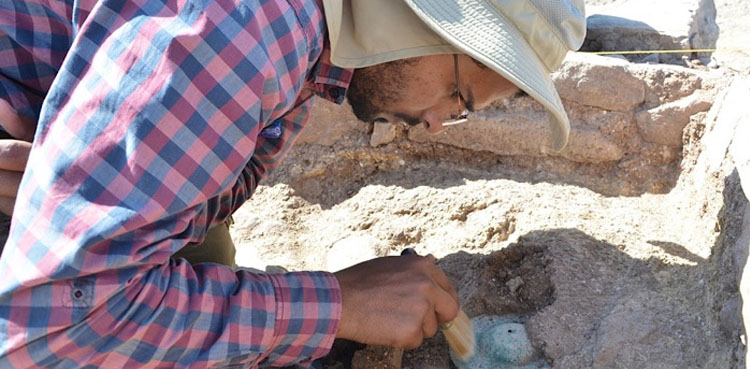Archaeologists in Oman have made an important discovery, uncovering a pair of copper cymbals believed to be the oldest copper musical instruments ever found in the Arabian Peninsula and the Levant.
According to Omani media, the discovery was made at Dahwa 7, near Wadi Al Sukhn in Saham, in the North Al Batinah Governorate of Oman.
The team from Sultan Qaboos University worked under the supervision of the Ministry of Heritage and Tourism. These cymbals were uncovered in a small temple built more than 4,000 years ago.
The site, located on a high plateau, was once part of a local civilisation that lived between 2700 and 2000 BC.
Archaeologists found buildings, tools, and pottery, including imported items from the Indus Valley. This shows that the people of Oman had trade ties with the Harappan civilisation in present-day Pakistan.
Read More: Oman Air launches direct flights to Amsterdam
The cymbals were found inside what is thought to be a religious building. Experts believe the instruments were used in sacred rituals, possibly during chanting or ceremonies.
The use of musical instruments in religion at the time also appeared in ancient cultures like those in Mesopotamia and the Indus region.
Tests show that the cymbals were made from Omani copper, likely taken from areas near Muscat.
The cymbals are not just rare, they help show how early people in Oman had strong cultural and religious links with far-off lands.
This new evidence adds to Oman’s history as a place rich in heritage and global connections.
The findings have been published in the UK journal Antiquity and are gaining attention from international experts.
This discovery focuses only on the ancient instruments and the civilisation that made them, with no link to recent news or pop culture.


Leave a Comment